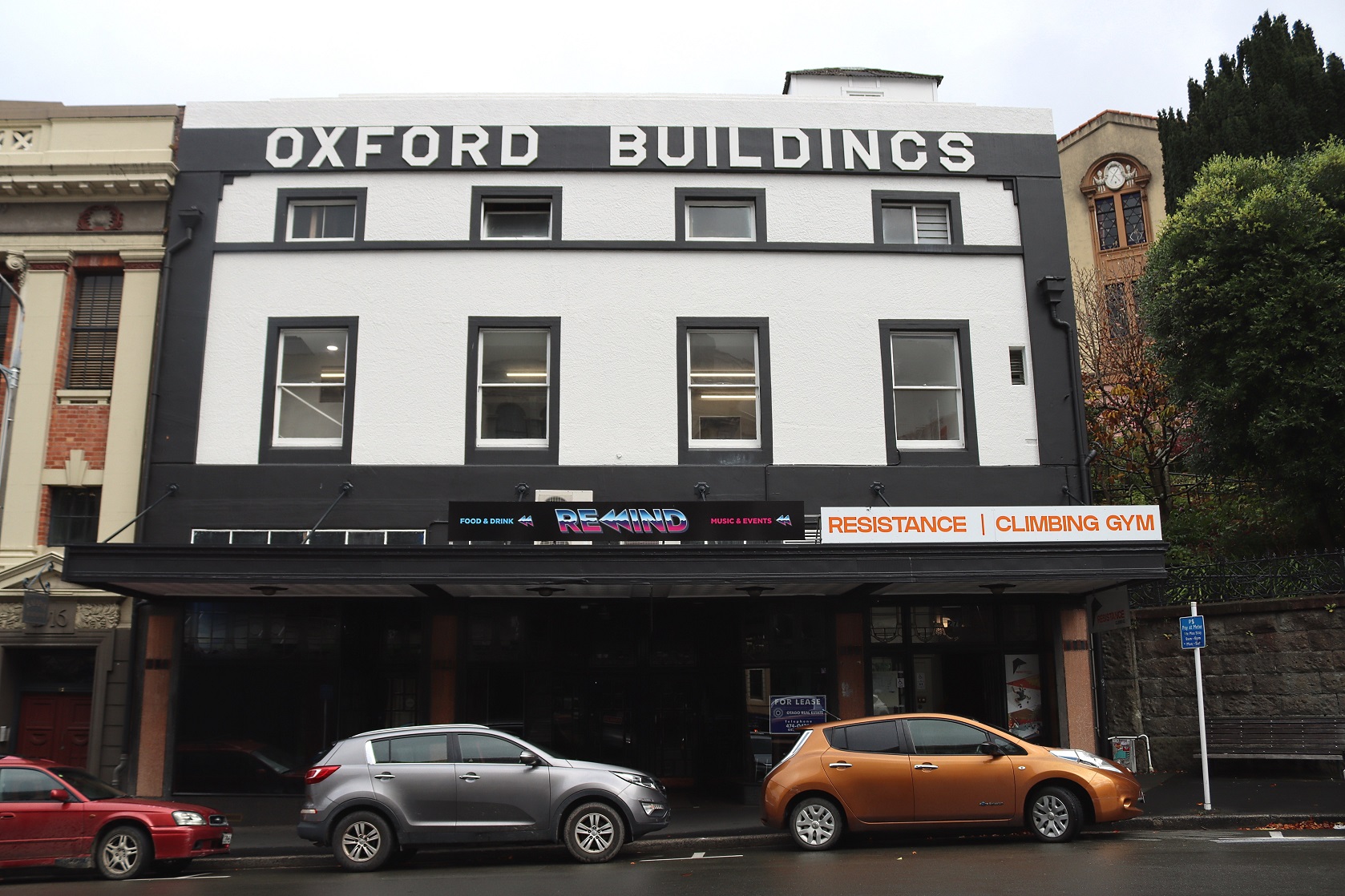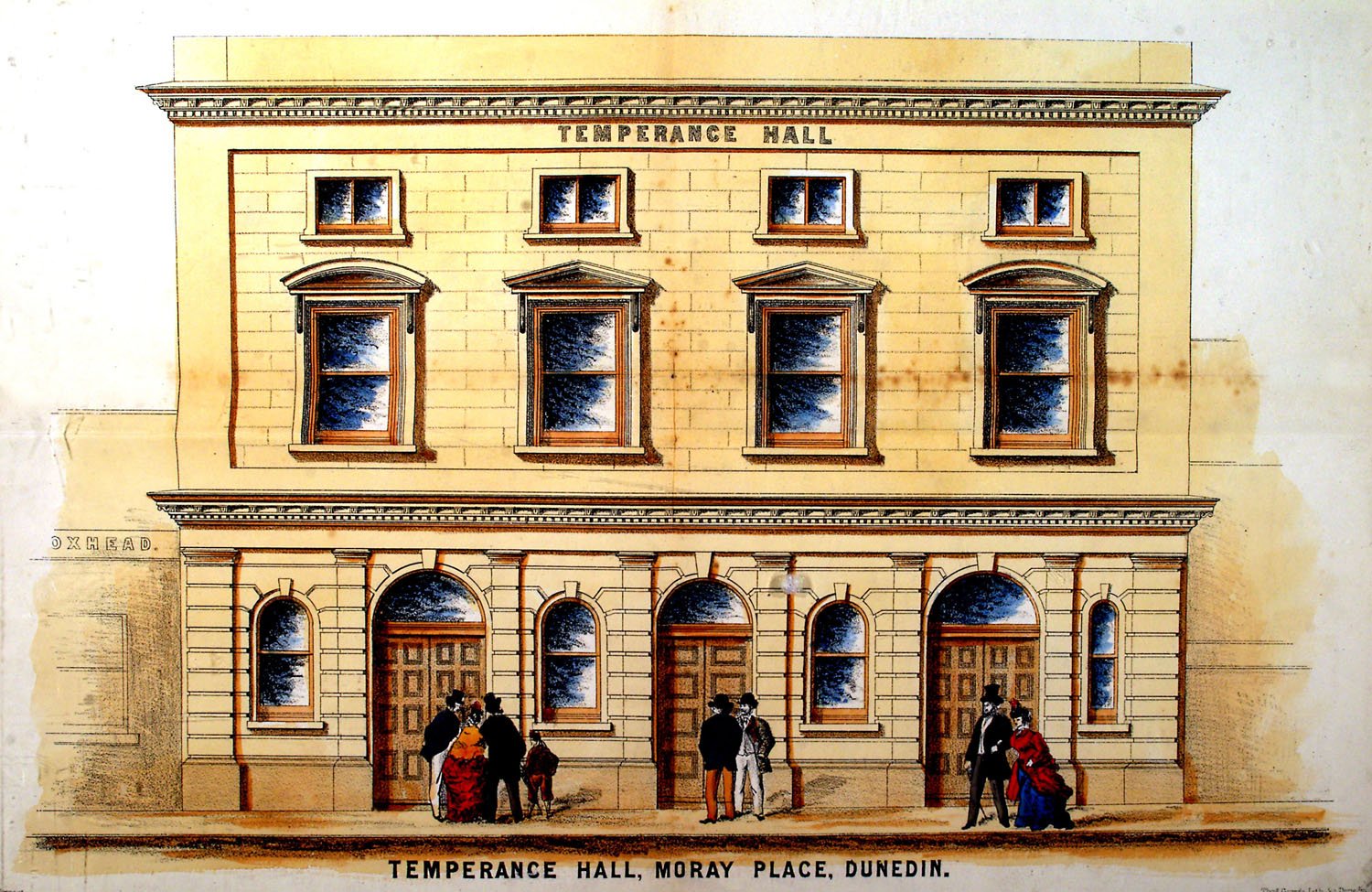
Tucked away in a corner of Moray Pl is a rather plain-fronted property with the words "Oxford Buildings" picked out in relief lettering.
The ground floor of this building in recent years housed the much-loved bar Dog with Two Tails and the short-lived Rewind Dunedin.
These drinking establishments would have dismayed the original owners of the building, the Dunedin Temperance Hall Company.
Established in 1873 for the purpose of building the Temperance Hall in Moray Pl, the directors envisioned a space that could be used by several "Total Abstinence Societies" in the city.
The opening event in 1874 included a night of entertainment featuring 900 attendees, and the hall became a magnet for temperance organisations.
University of Otago associate professor John Stenhouse said the stereotype of temperance advocates as "a pack of puritanical killjoys" was not an accurate portrayal.
The Temperance Hall aimed to provide an alternative to the pub, offering entertainment such as singing, dancing, and other forms of "good clean fun".

The Scottish Free Church Presbyterians, the founders of Dunedin and part of the first wave of European settlers in the 1830s and 1840s, were displeased by the arrival of the newcomers, sometimes referred to as the "new iniquity".
"Gold generates those sorts of tensions, and so does drink," Prof Stenhouse said.

This economic pressure allowed the temperance message to resonate more strongly.
In 1885, Women’s Christian Temperance Union of America missionary Mary Leavitt visited Dunedin, inspiring local women to organise against alcohol and for the vote.
She preached that the liquor trade was an enemy of God, home and humanity, and for many local women that made a lot of sense, Prof Stenhouse said.
Soon after her visit, local branches of the Women’s Christian Temperance Union and the Young Women’s Christian Temperance Union were established.
"And they soon begin to campaign against liquor, against booze, and for the vote."
In the South Dunedin working-class area, women signed the 1892 suffrage petition in large numbers, turning Dunedin into a "world-leading first-wave feminist city".
"There are very strong connections between the temperance movement and the women’s suffrage campaign, especially in Dunedin," Prof Stenhouse said.
For decades, the Temperance Hall hosted various forms of entertainment, including concerts, dances, lectures and art exhibitions. Religious, political, cultural, intellectual and musical groups hired the hall. Notable events included McDonough’s Troupe of Marionettes in 1876 and "The Great Waxworks Exhibition" of 1881.
By 1886, evangelist Alfred Brunton used the hall for his Brethren congregation. His biblical lectures and choral performances, with up to 100 singers, were very popular. The hall became known as the Choral Hall and was later renamed Oxford Buildings in the 1930s, housing a hairdressing college.
In the 1940s, it became home to the Dunedin Manufacturing Company, specialising in wedding dresses and evening gowns.oday, the upstairs hall is a climbing gym, and the downstairs is for lease, awaiting the next chapter in this historic Dunedin building.














